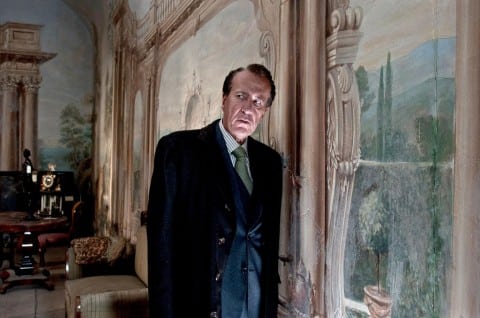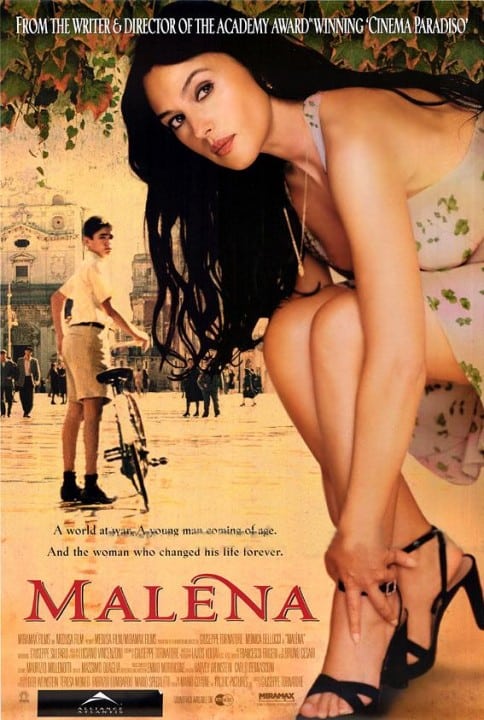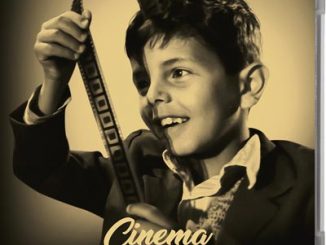Deception (2013)
Directed by: Giuseppe Tornatore
Written by: Giuseppe Tornatore
Starring: Donald Sutherland, Geoffrey Rush, Jim Sturgess, Sylvia Hoeks
DECEPTION AKA THE BEST OFFER, LA MIGLIORE OFFERTA [Italy 2013]
AVAILABLE ON DVD AND BLU-RAY: Now
RUNNING TIME: 130 min
REVIEWED BY: Dr Lenera, Official HCF Critic
Virgil Oldman is an elderly and esteemed, but somewhat eccentric, managing director of an auction house. He’s been involved in a scam for decades with his friend Billy Whistler where he pretends valuable master paintings are fakes so nobody wants them, Billy buys them, then sells them to Virgil for the same price. Virgil has amassed a huge collection this way. Virgil is hired by a reclusive young heiress, Claire Ibbetson, to auction off the large collection of art and antiques left to her by her parents. Young artificer Robert helps Virgil in restoring and reassembling some odd mechanical parts he finds amongst Claire’s belongings, but Virgil becomes more fascinated by Claire, who just won’t let him see her…..
Every now and again it probably exasperates a film lover when he or she sees a film which hasn’t received anywhere near as much attention as he or she thinks it should. This seems to be the case for many of the films of writer/director Giuseppe Tornatore. I remain convinced that this guy is one of the finest filmmakers working today. His work tends to be very popular and appreciated in his native country of Italy, but only Cinema Paradiso [which does remain his masterpiece and is something he’ll never match] and to a lesser extent Malena [and that was probably more due to the divine Monica Bellucci] seemed to get much attention in the UK and the US. Deception, which has been re-titled from The Best Offer [it was even released under that name in the US] barely seemed to appear UK cinemas at all, despite it being shot in English. I guess that Tornatore’s fable-like stories, heavy irony, intense romanticism and unabashed sentimentality seem a little old-fashioned to many – in fact I believe that if this director had worked in the 60’s and 70’s he’d be regarded internationally as one of the greatest ever. It’s a different world now though, and that’s not necessarily a good thing. For me anyway, the man’s films touch my heart, and I await each offering from him with great excitement.
I will say, though, that 2009’s Baaria, his chronicle of 50 years of Sicilian history, didn’t totally connect with me. Perhaps it was too personal for the director, for whom it obviously had a lot of meaning. However, there was no such lack of connection with Deception [God I really wish they hadn’t re-titled it, how many films are already called Deception?], which totally had me in its power right from the first moment. In some respects, this supremely elegant, heavily symbolic and very moral tale is a little different from what we’ve come to expect from Tornatore and perhaps even shows a different direction he may be going in, but it’s a very fine picture nonetheless, though not that easy to pigeonhole. I suppose you could call it a thriller, though if you want lots of thrills you’ll be disappointed with Deception, which is happy to amble along at a leisurely pace for three quarters of its length but builds up a quiet atmosphere of dislocation that is up there with the best of Roman Polanski. More than anything else, this is a film about art, how to create it, how to possess it, and its effect. There is a simple scene early on that shows art’s power better than probably any other film I’ve seen. Virgil sits in a large room in his house and looks at his enormous collection of female portraits as music of an almost heavenly quality emits from the soundtrack. The music, by the way, is by the God known as Ennio Morricone, who still scores Tornatore’s films if hardly anybody else’s now, and I couldn’t help but think of the great Morricone-scored Dario Argento movie The Stendahl Syndrome, which also deals with art’s effects.
The ‘hero’ of this story is a selfish and egotistical man who, like Tim Roth’s character in Tornatore’s The Legend Of 1900, isolates himself from the world, though at least 1900 had his ship. The fact that Virgil always wears gloves seems to be less a fear of germs than a kind of snobbishness. He even has personal cutlery, crockery and glasses with his own initials inscribed on them. He leads an extremely lucrative existence from the scams that he carries out with his friend Billy and now has a collection of paintings that rivals your average room in the Louvre, but it’s an emotionally empty existence. He’s not even very nice to Billy, whose own exercises with the paint brush he’s constantly belittled. Things begin to change though when he’s asked to value the items in the house of Claire. Claire constantly finds excuses, some of which are obviously lies, not to be seen and even when she reveals that she hasn’t left the house since she was 15, she prefers to communicate from behind a wall. Her house, by the way, is a virtual museum of art. All this is handled in a very unhurried fashion which is perhaps too unhurried for some, and a sub-plot involving the finding of the parts of some mechanical device and the rebuilding of what turns out to be an automaton seems a bit irrelevant in a narrative sense, but it’s totally relevant in a symbolic sense, because Virgil is virtually an automaton himself, and at the same time as the machine is being re-built, Virgil is beginning to break his shell and become just a bit more human.
He falls in love, you see, though at first it’s with somebody he’s never actually seen. When she does reveal herself to him, and to us, she could almost be his granddaughter let alone his daughter, and one can find objectionable yet another old man/young girl cinematic relationship, but actually it’s necessary for the balance of the story and its themes, and certainly makes sense come the twist near the end. It’s a twist that has been done at least twice before, though its revelation sure took me by surprise even though I knew damn well there was a twist coming up. Like the best twists though, it leaves some of the exact details unexplained, though in a way what happens is less important than how Virgil has been transformed into a different person, someone with compassion, and someone who is able to love someone more than himself. Deception ends with your usual Tornatore touching finale, and it’s heavily reminiscent of the truly heartbreaking ending of Everybody’s Fine [Tornatore’s film, not the middling American remake], though it’s a bit more ambiguous than most. In any case, it takes place in one of the weirdest restaurants I’ve seen in ages, the tables surrounded by dozens of clocks and cogs, though of course it’s more metaphorical than anything else.
Though filmed like The Unknown Woman mostly in Trieste, the majority of Deception takes place in a strange un-named European city, perhaps German, though of course everyone speaks English and some details are in English too. It doesn’t matter too much and maybe enhances the odd atmosphere. Also adding to that element are some strange, uncanny details like a little woman in a bar who memorises anything. Most of the film takes place in three locations: Virgil’s huge but sterile abode, Claire’s fascinating house full of secrets and art everywhere you look, and just outside it where the emphasis is on the cold and the grey – in a way this is Tornatore’s coldest film but that doesn’t mean it lacks emotion and beauty – but a switch to a park during sunset is a gorgeous exception and one of the loveliest-shot scenes of its kind in quite a while. Tornatore’s direction feels very precise, almost mechanical, in keeping with elements of the story and its lead character, but as usual his transitions are second to none. He seems more influenced by Alfred Hitchcock than usual, and especially seems to be inspired by Vertigo for several scenes and ideas. Considering how I’m in agreement with many critics who claim Vertigo is one of the greatest films ever made, I always find it a joy to see bits and pieces from it turning up in other films. And of course, art is everywhere – sensuous paintings, voluptuous sculptures and ornate furniture, all transpiring to dominate the senses.
Geoffrey Rush gives a performance that is the equal of his extraordinary appearance in Shine, making us care for Virgil right from the beginning even though his manner ought to put us off, and showing his transformation with both great detail and subtlety. Donald Sutherland as Billly and Jim Sturgess as Robert, the artificer who pieces back together the automaton and gives Virgil advice on how to woo Claire, give great support, but it’s really Rush’s show acting-wise. As usual, Tornatore had Ennio Morricone write most of the music before any film was shot so that some of the movie could virtually be choreographed to it. His score is often content to just brood in the background, which it does superbly, but it does take flight during some passages when he brings in his old collaborator Edda Dell ‘Orso and a chorus for some amazing passages which genuinely sound as if angels are singing. Deception could probably have done with losing a few scenes which repeat each other, and too often feels the need to spell things out in a way which isn’t needed. It’s really quite a simple tale if taken literally, and you can enjoy it as just a casually paced but utterly hypnotic drama with a touch of mystery and a sting in its tail. There’s quite a lot going on beneath the surface though, and I feel it’ll get even better with successive viewings. Many of the best stories are about creation and transformation, and again Tornatore has made one of the best films of the year [I’m counting it as a 2014 film, as it was only released in Italy in 2013]. If you go on, say, the IMDB, you’ll see that many who have seen it love it, but not enough have actually seen it. Maybe things will change with his next film, which looks like it will be Leningrad, a project that Sergio Leone was planning before he died. Now, if you do enjoy Deception, think about the scene where she tells him that she loves him, and whether you agree with me that she was, at that point, telling the truth.
Rating: 

















i hope she was telling the truth, i give you that much. I relate to a man waiting all his life for someone, facing the possibility of never finding it.
I relate to all too briefs moment of pure love and happiness, so cruelly short and yet worth.
So i was hoping stupidly for his love story to last. But there was tragedy written all over this tale.
I like that this is reviewed in a site called Horror Cult Films, i felt Hitchcock influence, and was also under the impression of watching one of the Corman/Price Allan Poe’s adaptation. A more sophisticated version.
Also the dwarf girl by the window reminded me of something Argento would have done, back when he was good.
The Automaton was also a creepy looking thing.
Anyway, great movie, outstanding performance. His face when he sees the wall at the end? and drops the frame… I had to go back and re-watch it.
The Automaton was also a creepy looking thing.
Anyway, great movie, ourstanding performance. His face when he sees the wall at the end? and drops the frame… I had to go back and rewatch it.
Good to hear from another fan of this rather neglected movie, I oddly related to aspects of it too. I think you made some very eloquent comments about it, and yes, I can see Corman/Poe elements now that you’ve mentioned it, though they weren’t immediately obvious to me!